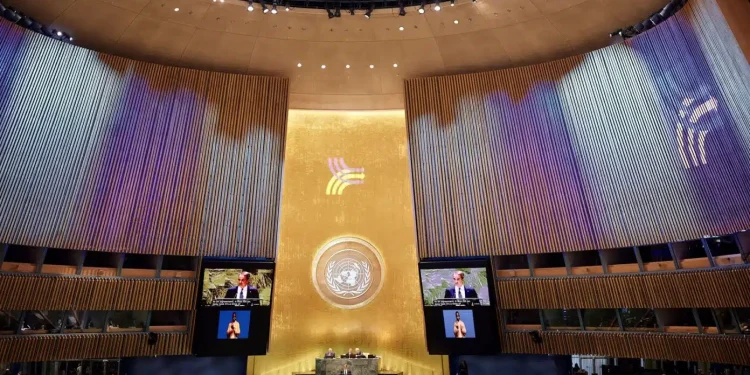On Sunday, the UN adopted the “Pact for the Future” aiming to transform global governance, a culmination of a years-long process to adapt international cooperation to the realities of today and the challenges of tomorrow.
As the most wide-ranging international agreement in recent times, it thoroughly covers novel areas as well as issues on which agreement has not been possible for decades. Above all, the pact aims to ensure that international institutions can deliver in the face of a world that has changed dramatically since they were created.
As Antonio Guterres the Secretary-General has said, “We cannot create a future fit for our grandchildren with a system built by our grandparents.”
During his remarks at the opening of the Summit of the Future, the Secretary-General declared the agreement to be “the Pact for the Future, the Global Digital Compact, and the Declaration on Future Generations [that will] open the door to new opportunities and untapped possibilities.”
The President of the General Assembly noted that the pact would “lay the foundations for a sustainable, just, and peaceful global order—for all peoples and nations.”
The agreement covers a broad range of issues, including peace and security, sustainable development, climate change, digital cooperation, human rights, gender, youth and future generations, and the transformation of global governance.
“We are here to bring multilateralism back from the brink,” Guterres said. “Now it is our common destiny to walk through it. That demands not just agreement, but action.”
Greek PM speaks on the UN’s Pact of the Future in New York. Credit: Press Office of the Greek PM
Greek Prime Minister Kyriakos Mitsotakis addressed the United Nations Summit of the Future in New York, underlining that “there are global threats that demand global solutions,” among other things.
“We have the opportunity to do something before it is too late, before we get to the next real global crisis,” the Greek Premier said, noting that it was still possible to avert disaster.
Despite difficulties, the Prime Minister said consensus had been achieved in an age of polarization, division, and distrust because global threats demanded collective solutions.
Mitsotakis stressed that Greece, as a newly-elected member of the UN Security Council in the next two years, was an active participant in these difficult negotiations and that the pact is considered a necessary first step for dealing with contemporary global challenges.
At this moment in time, the Prime Minister said, this reconfirmation and “return to the basics” of the UN Charter was essential, such as the peaceful resolution of differences with respect for international law.
From now on, he added, it will be “possible for us to move forward and resolve the main challenges of our age together…with the Pact for the Future we have ‘road map’ that will lead us there. Nothing can be of more vital importance.”
Mitsotakis and Turkish President Recep Tayyip Erdogan will meet on Tuesday September 24th at 6:40 p.m. Athens time in a hall of the main building of the United Nations, government sources told the Athens-Macedonian News Agency (AMNA). In addition to the two leaders, the foreign ministers of the two countries and the directors of their diplomatic offices will attend the meeting.




















